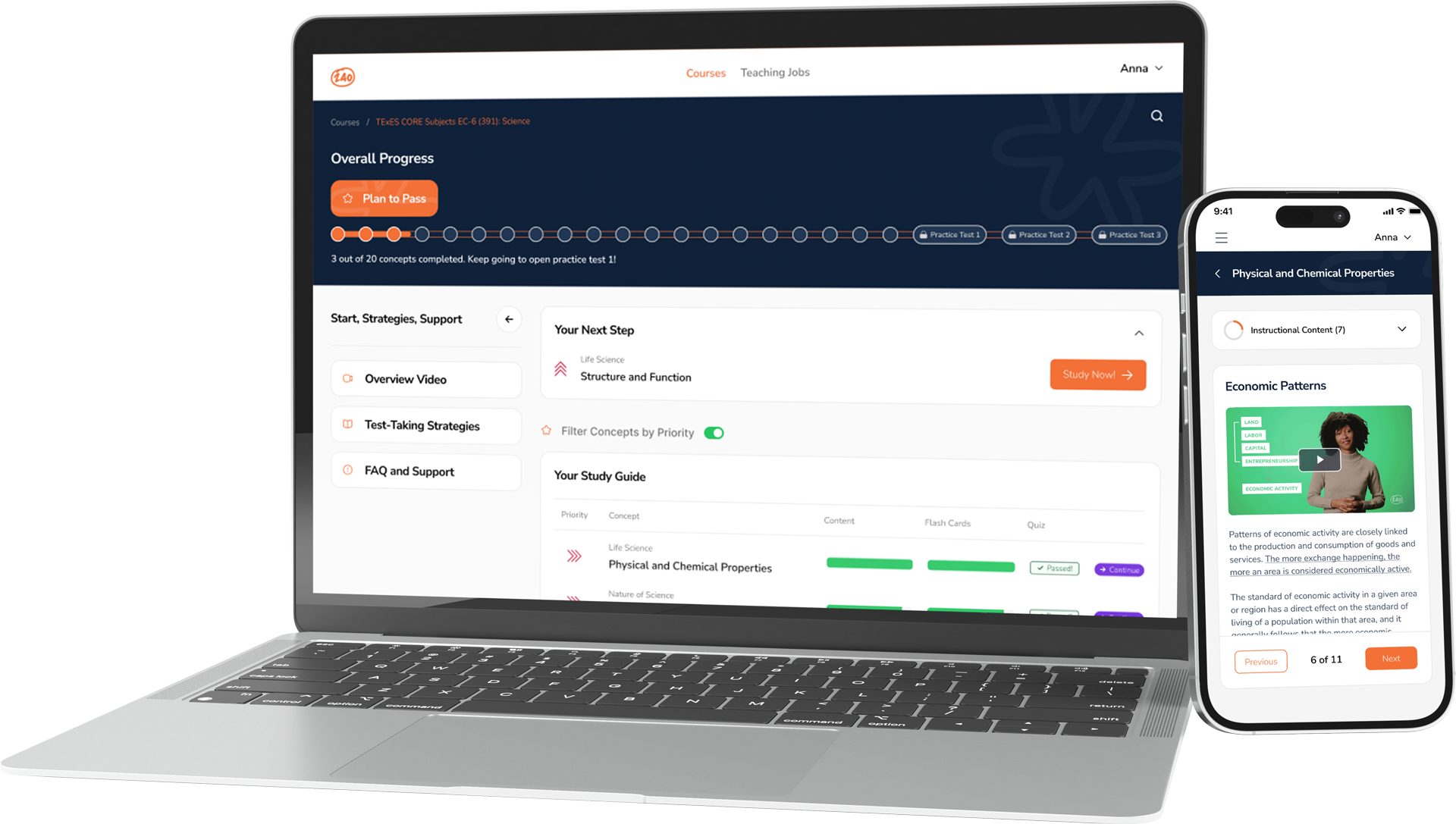Our Best Tips for Managing Testing Anxiety

 It’s the morning of your teacher certification exam. You’ve studied for weeks. You’ve taken practice tests and aced them. But you reach the testing center and your heart begins to race. Your palms become sweaty. You feel like you have forgotten everything you have ever known. If you suffer from test anxiety, you need to have a plan for how you will handle your jitters on exam day.
It’s the morning of your teacher certification exam. You’ve studied for weeks. You’ve taken practice tests and aced them. But you reach the testing center and your heart begins to race. Your palms become sweaty. You feel like you have forgotten everything you have ever known. If you suffer from test anxiety, you need to have a plan for how you will handle your jitters on exam day.
It’s common to experience some level of anxiety leading up to an exam. Fortunately, we have some test-taking anxiety tips that can help you to manage common jitters on test day. While several of these tips are geared toward teacher certification exams, they are applicable to reducing anxiety during ANY test.
Here Are Our Best Tips to Help with Test-Day Anxiety
Tip 1: Be Prepared
The best way to reduce test-day anxiety is to be prepared to take the exam. You can do this by starting to prepare for the exam early on. In addition to studying the material on the exam, make sure to familiarize yourself with the exam format. It’s a good idea to take a few practice tests to get an idea of what the exam will be like. There are websites that can provide you with resources and study guides to help you feel prepared.
Tip 2: Get a Good Night of Sleep
In order to focus, you need to be rested. So, it’s important to make sure that you get a good night of sleep before the exam. Don’t spend the night before trying to cram as much information as possible. This will only make you more stressed and tired. Teacher certification exams are designed to gauge your understanding of major concepts, not information that could be crammed in one night. Aim for at least seven hours of sleep. If your exam is early in the morning, and you’ve been going to bed really late, it’s a good idea to start adjusting your schedule a week or two in advance.
Tip 3: Fuel Your Body
Your brain and body need fuel to perform at their best. You have probably already been told that it’s important to eat a healthy, filling breakfast the day of your exam. This is good advice, as exams can be quite long, and you will need energy. Plus, nobody wants to be distracted by a rumbling stomach. However, avoid too much caffeine, as that can increase your heart rate and make you feel even more anxious. And remember that it’s never a good idea to do something completely new the morning of your exam, so don’t stray too much from your usual routine.
Tip 4: Get to the Exam Site Early
There are some things that you should do before your exam to lower your chances of feeling anxious. Ensure that you know the address of the testing site in advance, and leave early to ensure that you have plenty of time to get to where you need to be. It helps to pack everything you need for the exam the night before and set your alarm so that you aren’t stressed about being late. You don’t want to begin the exam frazzled because you were almost too late to take it.
Tip 5: Read the Directions Carefully
If you’ve taken some of our free practice tests, you’re probably already familiar with the question types, but it’s never a bad idea to read the directions thoroughly before answering a question. You don’t want to waste time determining the answer to a question, only to realize that it wasn’t what the question was asking for. It will also help to review test-taking strategies before your test, as there are some strategies that can help you with every type of exam.
Tip 6: Ignore the Other Test-takers
Nothing good can come from watching the other test-takers around you. Everyone has different test-taking strategies and moves at their own pace. There is no reward for being the first person to finish the exam, so take your time and focus on yourself. You do you!
Tip 7: Breathe
It’s important to stay calm during the exam. Too much worry can cause you to lose your working memory and ability to concentrate. A few minutes of deep breathing can do a lot to calm your nerves both before and during an exam. Try taking a deep breath, holding it for five seconds, and then slowly releasing it. Box Breathing is an effective technique for distracting your mind and calming your central nervous system. This is one that can be used any time you’re feeling anxiety, but it’s especially good for during tests, but you absolutely need to practice how to do it before test day.
Tip 8: Relax Your Body
Relaxing your body will help you reduce tension and nervousness during an exam. One way you can do this is to plant your feet firmly on the floor, straighten your arms and clench your fists. Tighten as much as possible and then let go and relax. All of the tension should fade away. Sometimes it’s helpful to close your eyes and imagine that you are in a relaxing place as you do this.
Tip 9: Build Your Confidence
Your mindset going into a test can make quite a big difference in your performance. To have a positive mindset, try your best to change any negative self-talk to positive self-talk. Remind yourself of all the work you put in to prepare for the exam and focus on what you know and what you can do. It may help to repeat a positive mantra to yourself, like “I know this material. I can do this.” A study found that writing your worries down before an exam could help you to feel less anxiety during the exam. It may be worth giving it a try.
Tip 10: Put Things in Perspective
You paid for the exam and had this day on your calendar for months. You need to pass this exam. You’re not wrong to think it’s important. But, remember that most certification exams can be retaken in 30 to 60 days for a small fee, so failing an exam, although discouraging, isn’t the end of the world. Remembering this will help to alleviate some nerves.
A little test anxiety can be a good thing, as it helps motivate you to do your best, but too much anxiety can negatively impact your performance. On your next test day, simply follow our advice, so anxiety doesn’t keep you from performing your best.
Need help studying for your teacher certification exam? We helped 49,649 educators pass their exams last year — and we are ready to help you! Start studying today.


